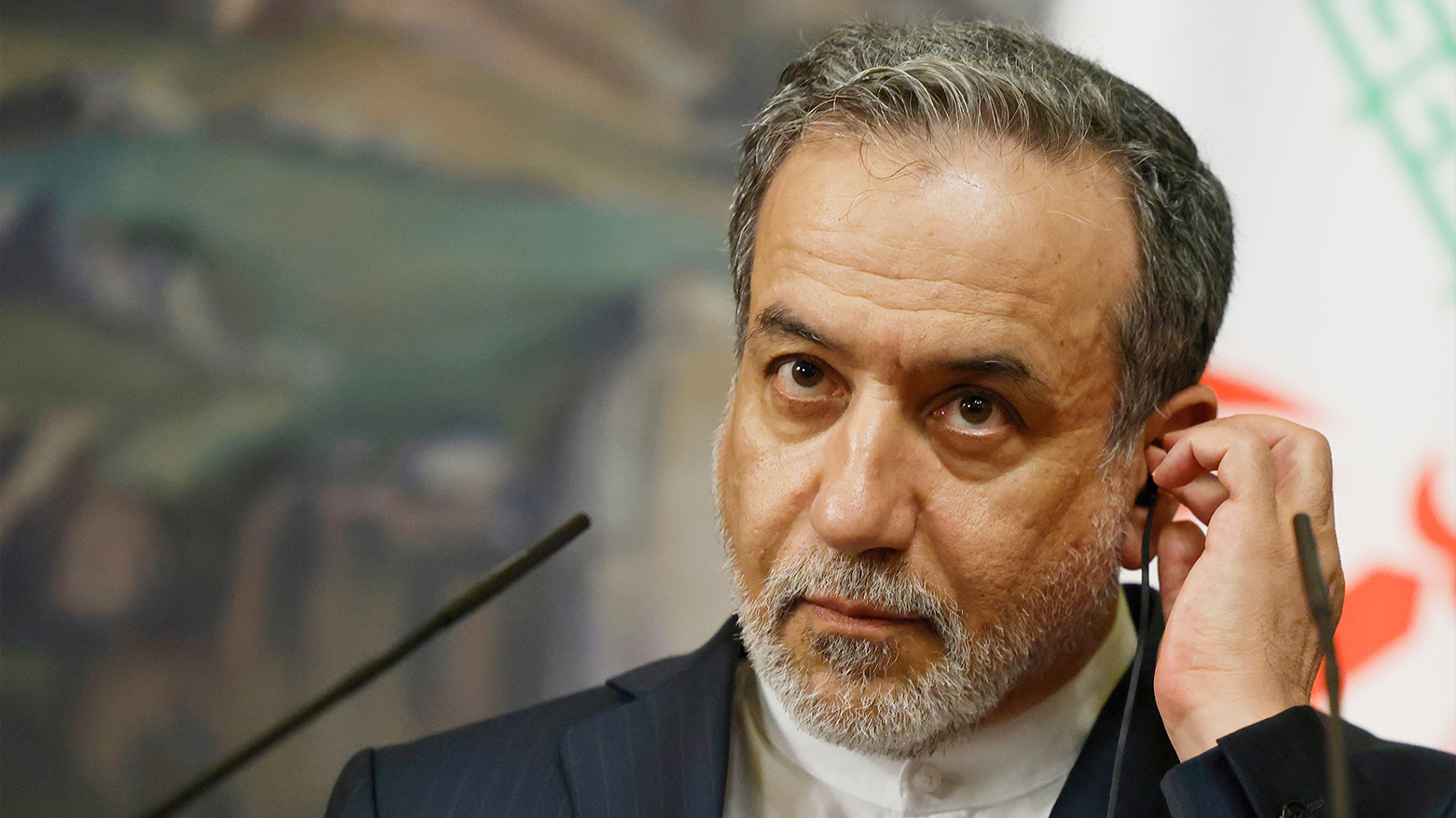Iran Warns of Deep Distrust Ahead of Rome Nuclear Talks with U.S.
"We have serious doubts about the intentions of the American side, but we will participate in tomorrow’s talks with full seriousness and determination," Araghchi declared.

By Kamaran Aziz
ERBIL (Kurdistan24) – On the eve of a critical second round of indirect negotiations between Iran and the United States in Rome, Iranian Foreign Minister Abbas Araghchi has voiced serious doubts over Washington’s intentions, casting a shadow over the already fragile diplomatic process. Speaking during a joint press conference in Moscow alongside his Russian counterpart Sergey Lavrov, Araghchi warned that while Tehran remains committed to diplomacy, trust in the U.S. position is tenuous at best.
"We have serious doubts about the intentions of the American side, but we will participate in tomorrow’s talks with full seriousness and determination," Araghchi declared, as Iran and the U.S. prepare to engage in Oman-mediated discussions over Tehran’s nuclear program. The talks, set for Saturday, April 19, come amid rising concerns over military escalation, inconsistent U.S. messaging, and deepening regional tensions.
According to AFP, U.S. Secretary of State Marco Rubio urged European countries on Friday to consider reinstating "snapback" sanctions on Iran, claiming Tehran’s non-compliance with the existing nuclear agreement. Meanwhile, Al-Monitor reported significant credibility issues facing the Trump administration. U.S. envoy Steve Witkoff recently made contradictory statements on Iran’s uranium enrichment rights, initially appearing to allow limited enrichment before abruptly reversing course. The flip-flop has further strained Tehran’s confidence in Washington’s seriousness.
Iran insists its enrichment program is peaceful and non-negotiable. Jonathan Panikoff of the Atlantic Council warned that mixed messages from the U.S. could significantly erode its leverage at the negotiating table.
In a wide-ranging interview with France 24, former U.S. envoy Elliot Abrams echoed these concerns, warning that the Trump administration’s eagerness for a deal may appear as weakness. "There’s a real danger here, which is that the Iranians perceive that Trump is too anxious and that his negotiator, Mr. Whitkoff, is too anxious for a deal," he said. Abrams added that without stronger limitations on missiles and regional influence, the talks risk replicating the shortcomings of the 2015 deal.
He also highlighted the Trump administration’s military build-up in the region as both pressure and preparation, noting movements of aircraft carriers, B-2 bombers, and missile systems. According to The New York Times, Israel had also prepared military options to strike Iran, which were shelved when Trump chose to prioritize diplomacy—though he reaffirmed that "all options remain on the table."
Lavrov, for his part, reaffirmed Russia’s support for Iran’s position, stressing that any potential agreement must respect Tehran’s legitimate rights. "Russia welcomes the desire of Iran and the U.S. to achieve concrete agreements regarding Iran's nuclear program," he said.
Lavrov and Araghchi also rejected expanding the negotiations beyond the nuclear issue. "Any attempt to impose topics unrelated to Iran's nuclear program in these negotiations is unacceptable," Lavrov stated.
While Araghchi clarified that Rome is merely the venue and Oman remains the official mediator, he reiterated that Iran remains open to a peaceful resolution—if the U.S. avoids "unrealistic demands."
He praised Russia and China’s constructive roles and confirmed that Tehran is only engaging in indirect talks due to past threats and pressure from Washington.
Sources cited by Al-Monitor suggest Iran may consider an interim deal resembling the 2013 Joint Plan of Action—pausing enrichment in exchange for sanctions relief. According to Ali Vaez of the International Crisis Group, such a deal could appeal to Trump as a quick diplomatic win, though it risks criticism over its concessions.
The urgency is compounded by an October 18 deadline, after which Europe loses the ability to reimpose UN sanctions on Iran.
Araghchi’s Moscow visit included a meeting with President Putin, where he delivered a message from Iran’s Supreme Leader and discussed bilateral and regional coordination. Lavrov also announced the upcoming Russia-Iran Joint Economic Commission in Moscow, as bilateral trade nears $5 billion.
Both ministers also condemned Israel’s actions in Gaza, with Araghchi calling any displacement plan "entirely unacceptable."
As Rome prepares to host the next round of talks, Iran’s deep mistrust and Washington’s inconsistent messaging underscore the fragility of the moment. Whether these talks produce a diplomatic breakthrough or accelerate confrontation may define the next phase of U.S.-Iran relations—and the broader stability of the region.
